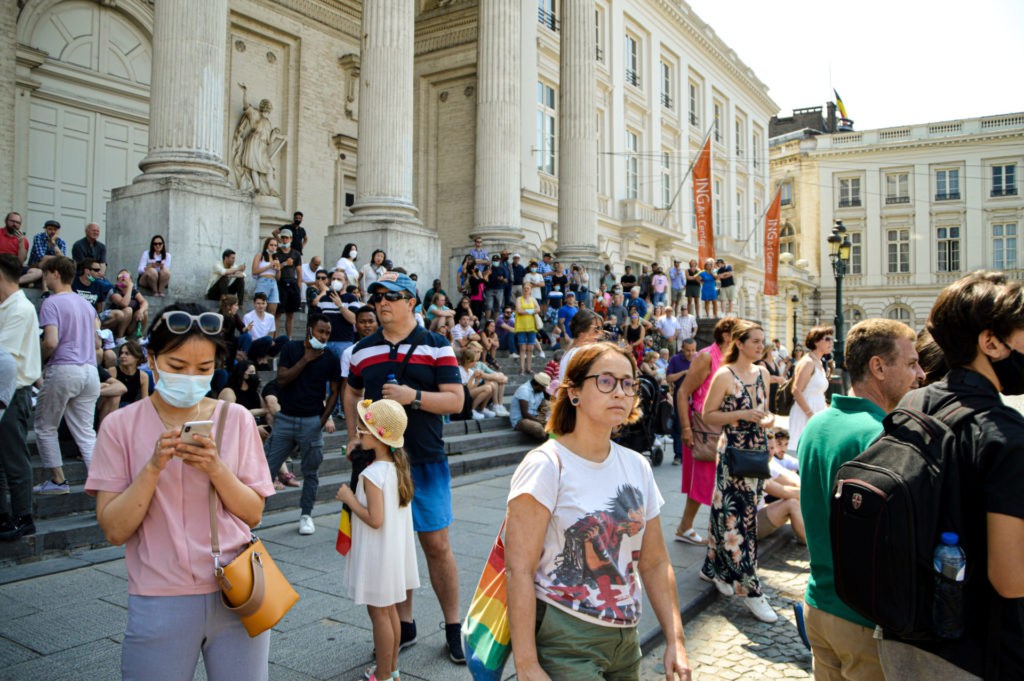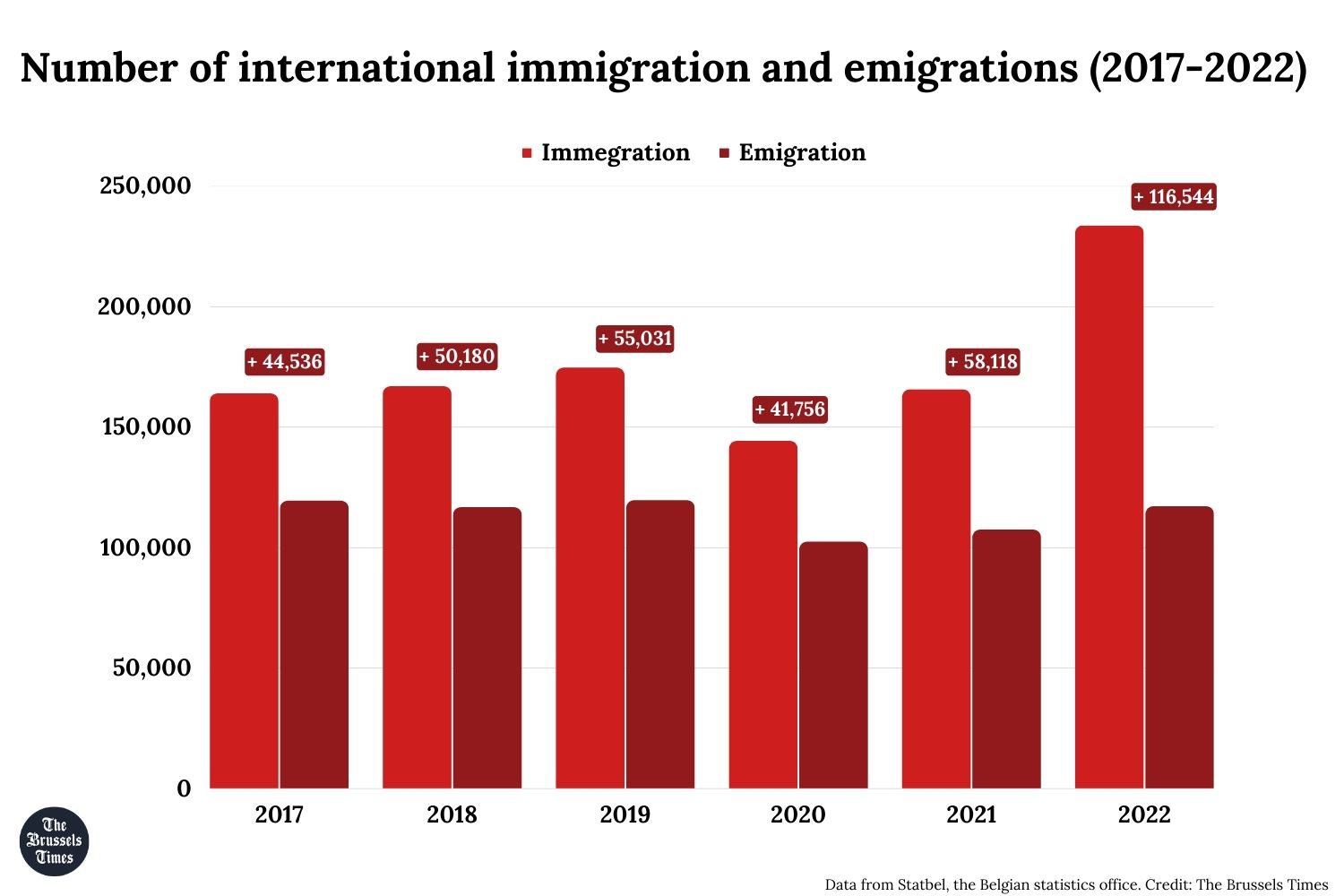Despite more people dying than being born in Belgium, the country's population experienced much higher growth than usual due to international migration.
Belgium saw its population increase by more than 113,500 over the past year, resulting in the total number of people registered as living in the country amounting to 11,697,557 in total, according to Statbel's latest data, published on Thursday.
"Last year, the Belgian population grew by 0.98%. The population growth rate was thus considerably higher than normal (a population growth rate of about 0.5%)," Statbel noted.
In 2022, the natural balance — the difference between the number of births and deaths — was negative, which is exceptional, according to Statbel, highlighting the trend of declining births and increased deaths as a result of the ageing population.
"In 2020, the year marked by the Covid-19 pandemic, this balance was also negative, but before that, we have to go back to the early 1940s to find a negative natural balance." However, even before the pandemic, this balance had been showing a downward trend for several years.
Brussels, where a solid population growth of 1.52% was recorded, was the only region where the natural balance remained positive in 2022 (+5,830), as 14,744 births and 8,914 deaths were recorded that year, but even here, a downward trend in this balance is also seen.
Effects of Ukraine war
While this negative natural balance would usually result in a decrease in the number of registered inhabitants in Belgium, this has been offset by the strong positive international migration balance, instead providing solid population growth.
"The international migration balance, the difference between immigration and emigration, was +116,544, a balance that is more positive than normal," Statbel wrote.
"Higher immigration is partly due to the war in Ukraine, as people of Ukrainian nationality make up the largest share."
The number of people who left Belgium (some 117,000), was in line with Statbel's expectations.
Moving around in Belgium
Statbel explained that a third balance plays a role in dictating the population growth among regions, namely the internal migration balance, which sums up the number of moves within Belgium.
In Flanders, the natural balance was negative, but a population growth of 1.13% was recorded as a result of international migration. More people moved from another region to Flanders (38,617) than people moving to another region (22,836).
Meanwhile, in Brussels, the internal migration balance was negative, as just 25,000 people moved to Brussels from another region, while some 44,300 departed the region to move elsewhere in Belgium.
Related News
- Birth rates in Brussels declining twice as much as the Belgian average
- Older and wiser: More women in Belgium start families later in life
In Wallonia, the number of inhabitants grew by 0.52%. Here too, the natural balance in 2022 was negative (-4,373), but both the international and internal migration balances were positive.



